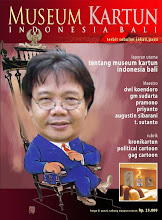by Anthony L. Audrieth
Printed sources. One of the best is the Readers Digest. Not the new issues, but old issues that have had time to be forgotten. The material is excellent, clean and likely can be adapted to your needs.
Joke books. You have to skim the cream. You may read 100 jokes and only find one that really fits your style or subject. Write that one down. Then there are publications like Orben's Current Comedy Corner that offer new humor on current events. You'll often hear his work presented by the likes of Paul Harvey.
Internet. Today, perhaps the best source of material, organized by subject matter is the world wide web. Search for humor and you will find thousands of possible sites and sources. They are often organized by subject matter. This can be a great way to find humor for your own unique field of application.
So, once you have found the materials, what then? Well, look at the following example and consider how the humor was revised. Bennett Cerf was a collector of humor. Dr. Jarvis was a humorous speaker who spent a lot of time really looking for good materials. When he found humor in Bennett Cerf's books, he had to adapt it to his own style. The first below is directly from Bennett Cerf's Bumper Crop, the second as presented by Dr. Jarvis:
A group of tourists stood spellbound looking into the depths of the Grand Canyon. "And this wonder is all the more impressive," the guide droned on, "when you realize that it took millions and millions of years to carve out this great abyss." "Well, well!" exclaimed a plain citizen, "I'd never have suspected that this was a government project."
Man's looking at the Grand Canyon. Park ranger saw him, thought he looked interested. Went over to him and said, "Yes, Sir, you know it took a million years to make this place." He said, "Government job?"
Notice that the second flows smoothly with out any excess words or descriptions. Charlie is a master at turning dry written humor into crisp effective humor that sounds more like conversation. You will need to revise the material you find to be more easily delivered.
Bibliography
The best place to locate the hard-to-find books is at used books stores. Sometimes it is like finding a needle in a haystack, but well worth the effort. For a complete listing, including books In Print and available through Amazon.com, Out-of-Print and Direct from the Source, visit Resources. Books I consider classics are in bold print.
???????????. The Algonquin Wits. Secaucus, NJ: Citadel Press.
Allen, Steve. Funny People. New York: Stein and Day.
The Funny Men. New York: Simon and Schuster.
Arnold, Oren. Wild West Joke Book. New York: Frederick Fell, Inc., 1956
Bassindale, Bob. How Speakers Make People Laugh. West Nyack, NY; Parker Publishing Co. 1977
Blakely, James "Doc". Doc Blakely's Handbook of Wit and Pungent Humor. West Nyack, NY: Parker Publishing Co., Inc.
Braude, Jacob M. Handbook of Humor for all Occasions. Englewood Cliffs NJ,Prentice Hall 1958
Cousins, Norman. Anatomy of an Illness. New York: W.W. Norton & Co.
Day, J. Edward. Humor in Public Speaking. New York: Prentice Hall
Droke, Maxwell. The Speaker's Handbook of Humor. NY. Harper & Bros 1956
Eastman, Max. Enjoyment of Laughter. New York, Simon & Schuster, 1936
Esar, Evan.The Sense of Humor. New York, C. Scribner's Sons 1921
Esar, Evan. Dictionary of Humorous Quotations. New York: Horizon ress. 1949
Esar, Evan.Comic Dictionary. New York: Horizon Press. 1951
Esar, Evan. Humor of Humor. New York: Horizon Press. 1952
Friedman, Edward L. Speechmaker's Complete Handbook. New York: Harper & Row, 1966.
Toastmasters Treasury. New York: Harper & Row. 1965
Gerler, William R., ed. Executive's Treasury of Humor for Every Occasion. New York: Prentice-Hall, 1965
Goldstein & McGhee. Psychology of Humor (Brigance Books?)
Harral, Stewart. When its Laughter your After. Univ. of OK Press, Norman OK.
Iapoce, Michael Using Humor in Public Speaking.
Johnson, Lyndon B. The Johnson Humor, ed. Bill Adler. New York: Simon & Schuster, 1965
Leacock, Stephen. Humor, Its Theory and Technique. New York. Dodd, Mead and Co. 1935
McGhee. Humor, Its Origin and Development.
Moody, R. A., M.D. Laugh After Laugh. Jacksonville, FL: Headwaters Press.
Murdock, Clyde. A Treasury of Humor. (paperback) Grand Rapids, MI: Zondervan Publishing House.
Orben, Robert. The Joke-Tellers Handbook or 1,999 Belly Laughs. New York: Bell Publishing Co.
Orben, Robert. Comedy Technique. New York. Lewis Tannen, 1951
The Ad-Libber's Handbook, 2000 New Laughs for Speakers. Garden City, NY: Doubleday & Co.
The Encyclopedia of One-Liner Comedy. Garden City, NY: Doubleday & Co.
Parish, James R. The Funsters. New Rochelle, NY: Arlington House Publishers.
Perret, Gene. How to Hold Your Audience with Humor. Writers Digest 1981
Phillips, Bob. A Time To Laugh. (paperback) Irvine, CA: Harvest House Publishers.
Prochnow, Herbert V. The Successful Toastmaster. New York: Harper & Row, 1966
New Speaker's Treasury of Wit and Wisdom. New York, Harper & Row, 1958
Rapp, Albert. The Origins of Wit and Humor. New York, Dutton, 1951
Rosten, Leo. Giant Book of Laughter. New York, Crown Publishers, 1985
Schindler, John A. How to Live 365 Days a Year. Prentice Hall, Inc. NY
Tidwell, James A Treasury of American Folk Humor. New York, Crown Publishers.
True, Dr. Herb. Humor Power. Garden City, NY: Doubleday & co.
Webster, Gary. Laughter in the Bible. St. Louis: Bethany Press, 1960
Wells, Carolyn. An Outline of Humor. New York, G.P. Putnams Sons 1923
Whiting, Percy H. How to Speak and Write with Humor. New York, McGraw-Hill. 1959
Wilde, Larry. The Great Comedians. Secaucus, NJ: Citadel Press.
Wilde, Larry. How the Great Comedy Writers Create Laughter. Chicago, IL: Nelson Hall.




































0 comments:
Post a Comment